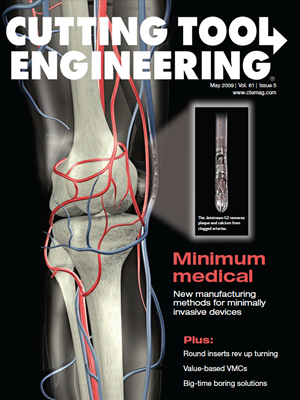Recently, our shop’s outside sales guys returned from a visit with an old customer that had sent us its first inquiry in 2 years. When they were back in the office, we wanted to hear about the prospective job and why the customer had disappeared from the backlog for so long. What they reported was valuable information that several key employees needed to hear, mostly so we could ensure we didn’t lose the business again. However, bruised egos and an unwillingness to accept a frank assessment resulted.
What was the bombshell? The customer had discovered that our quotes weren’t consistent from person to person for similar parts. When we initiated a company meeting to discuss our inconsistent pricing, we realized a nonsalesperson had provided pricing prior to the establishment of the current sales team.
This was not an insurmountable situation, but the discussion deteriorated from an objective critique to frustration and anger. Why? The hard-working production employees somehow perceived that the sales department was questioning their past actions. They weren’t, but the defensive mindset moved the meeting from what should’ve been a constructive discussion to one of mistrust.
So, this begs the question: How do you handle disputes between departments like sales and production and keep them working together? After all, they’re part of the same team—“the company.”
The solution requires good management techniques to help minimize these problems—but, in my experience, they’re impossible to eliminate. Managers have to be objective and motivate workers from the front office to the back of the shop. They also must encourage everyone to support their co-workers, even when they have a different perspective.
The bottom line is communication and cooperation. If employees aren’t doing it together, the company’s mission is in serious jeopardy. A sales department can’t succeed without an effective production department machining top-quality parts on time, and the production department can’t succeed without an effective sales team conveying the company’s outstanding production capability to the marketplace and generating orders.
Sounds simple enough, right? Not always. These two groups may not agree on how to handle many projects. Also, one group may not like to hear legitimate concerns expressed from the other and vice versa. For example, the sales staff may be aggressive in selling and acquiring new business under the current economic conditions in an attempt to add orders to the backlog. However, the production department may balk at a potential job they perceive as a headache. This can create animosity, especially if production knows the salesperson receives a commission.
One important way to minimize disputes is to carefully and specifically define roles and responsibilities to ensure there’s as little overlap as possible and that employees understand exactly what they’re supposed to be doing. In other words, you don’t want a production manager handling the sales and quoting functions or a sales person who previously worked in production giving advice to machine operators. They need to know how their roles and responsibilities will maximize the company’s potential.
Growth and success result when everyone is committed to the company’s mission and works together to accomplish it. CTE
About the Author: Keith Jennings is president of Crow Corp., Tomball, Texas, a family-owned company focusing on machining, laser cutting, metal fabrication and metal stamping. He can be e-mailed at [email protected].


